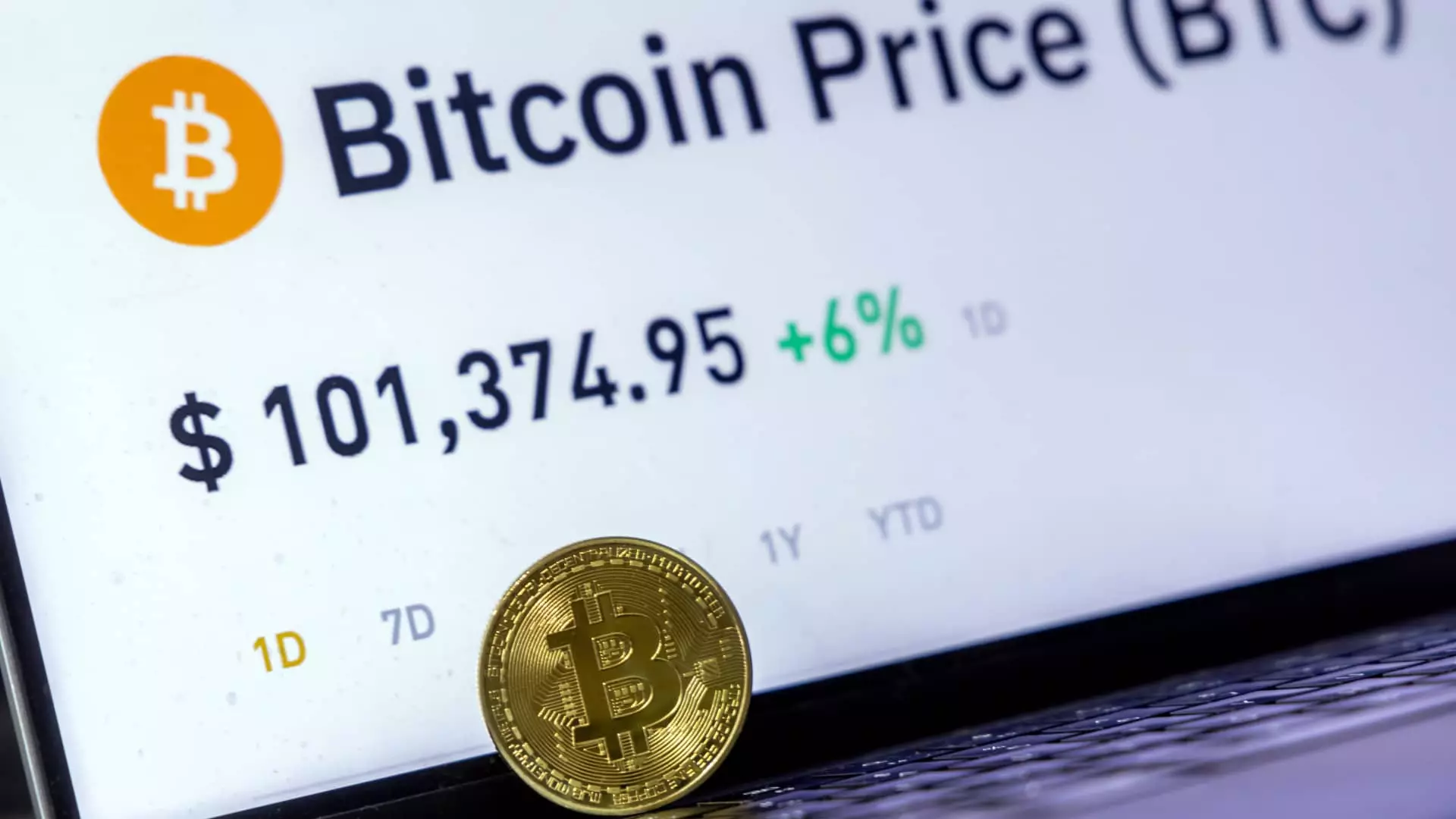Bitcoin, the flagship cryptocurrency, has recently achieved a monumental milestone by surpassing the $100,000 mark—a long-anticipated threshold celebrated by many in the investment community. This milestone not only signifies a substantial monetary valuation but also reflects a profound shift in the perception of cryptocurrency among institutional investors and within political spheres. The journey towards this unprecedented value is characterized by increased institutional adoption, regulatory developments, and notable political endorsements that collectively reshape the landscape of digital currency in the United States.
Throughout 2024, Bitcoin has experienced remarkable growth, boasting a staggering 140% increase since the beginning of the year. This wave of optimism can be traced back to the launch of Bitcoin exchange-traded funds (ETFs) on January 11. The introduction of these funds has drawn tens of billions in capital, the most significant of which has been funneled into the iShares Bitcoin Trust (IBIT), which now holds approximately $50 billion in assets. Such inflows signal a growing acceptance of Bitcoin as a legitimate investment vehicle, transitioning it from a speculative asset primarily favored by retail investors to a desirable target for institutional capital.
Institutional Buying: Fueling the Surge
The current surge in Bitcoin’s value is largely attributed to institutional demand. Notably, organizations have collectively acquired around 683,000 bitcoins so far this year through various means, including U.S. spot ETFs and sizable purchases from companies like MicroStrategy. Recent figures suggest that approximately 245,000 of these acquisitions occurred in the weeks following the presidential election, contributing significantly to the upward momentum. Experts, like Geoff Kendrick from Standard Chartered Bank, assert that this institutional involvement has been pivotal in pushing Bitcoin through the critical $100,000 threshold. The sentiment among institutional investors is shifting, viewing Bitcoin not just as a digital asset but as a store of value akin to precious metals.
The Political Landscape: Embracing Cryptocurrency
Parallel to its financial maturation, Bitcoin has also asserted its presence within the political landscape of the United States. The cryptocurrency lobby has made substantial investments during the 2024 election cycle, advocating for more favorable regulations. President-elect Donald Trump’s reported enthusiasm for Bitcoin is noteworthy; his participation in the Bitcoin Conference in Nashville vividly illustrates the growing acceptance of cryptocurrency. Furthermore, his choice of Paul Atkins, who is perceived as a crypto-friendly candidate for leading the Securities and Exchange Commission, marks a stark departure from the prior administration’s stance under SEC Chair Gary Gensler, who had taken a more critical approach to cryptocurrency.
Interestingly, external validation from traditional financial authorities contributes to Bitcoin’s rising legitimacy. Federal Reserve Chair Jerome Powell recently positioned Bitcoin as a competitor to gold rather than the U.S. dollar. While this statement may not constitute full endorsement, it does suggest a recognition of Bitcoin’s role within the investment landscape. By likening Bitcoin to gold—a time-honored safe-haven asset—Powell’s comments may have reassured investors regarding Bitcoin’s potential as a store of value, signaling a growing acknowledgment of cryptocurrency’s significance.
The surge past the $100,000 mark represents more than just a numeric milestone for Bitcoin; it encapsulates a broader acceptance and validation of cryptocurrency in both financial and political spheres. As institutional interest attracts significant capital and awareness, Bitcoin is undergoing a transformation from a niche speculative asset into a mainstream financial tool. Future growth will likely hinge on continued regulatory developments, further institutional investments, and ongoing political advocacy that aligns with the goals of the crypto community. As Bitcoin solidifies its position, it heralds the dawn of a new era in finance where digital currencies are poised to play an integral role in the global economy.

